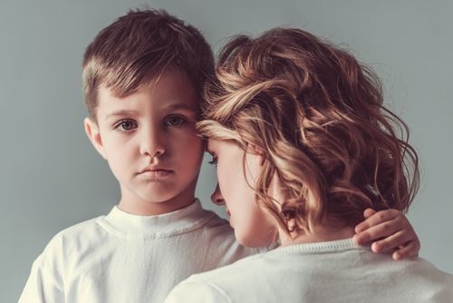After years of marriage, a divorce may be the only viable option left for you and your spouse. While the decision is best for everyone, your children will be deeply impacted by the separation. Their emotions cannot stand in the way of a healthy decision for your family, but understanding how your divorce will impact their mindset is crucial to caring for their emotional needs throughout this process. For this reason, Owenby Law has gathered the following research concerning the psychological effects of divorce on children to help you help your kids think through this new development in their lives.
Parents Cannot Fix Their Kids
The first thing to understand about this process is that there is no fix to how your children may feel about your divorce. Many post-divorce parents spend countless hours trying to make their kids feel okay about their divorce, but the reality is that it will always impact their lives. Studies show that when children of divorce become adults, they are more likely to have emotional and behavioral problems, negative attitudes, and less psychological wellness when compared to adults from intact families.
We don’t share this information with you to make you depressed or to rethink your decision of divorce; we share this information with you because it is crucial to your health to understand that you can’t save your kids from feeling negative about your divorce. You can make them smile, you can help them through school, you can be a great influence in their lives, but you may never help them overcome the emotional problems they will face from your divorce. Use this information to give yourself a break and to remind yourself that your kids have the right to their feelings.
Emotional Reactions & Behavioral Problems
When children find out about a divorce, they may act out emotionally in ways that are uncharacteristic of their typical behavior. For example, a child who is usually happy and excitable may become suddenly sad and moody.
Other common emotional reactions children have during and after a divorce:
- Anger;
- Loneliness;
- Anxiety;
- Fear;
- Desire to change the situation;
- Turmoil (from feeling like they have to pick between parents);
- Dejection; and
- Guilt (feeling responsible for the divorce’s occurrence).
In addition to the emotional reactions mentioned above, children of divorce have a higher chance of suffering the following developmental and behavioral issues:
- Depression;
- Aggression;
- Impulsivity;
- Hyperactive behavior;
- Emotional and mental withdrawal;
- Bipolar disorder;
- Dysthymia (mild chronic depression);
- Post-traumatic stress disorder.
How Different Age Groups Respond to Divorce
Children of different age groups will typically respond to divorce in anticipatable ways. However, it is important to note that every child is different and that these responses are generalizations made from research. Therefore, it is crucial that parents read these generalizations with a grain of salt.
Young Children (Before Age 5)
Young children are particularly vulnerable to separation, especially if the divorce stems from emotional conflict. At this age children may developmentally “regress” in their growth; relapsing to bedwetting and requiring constant attention from the authority figures in their lives.
Adolescents (Older Children)
While younger children may require an unhealthy amount of attention, adolescents may respond to divorce by withdrawing from their parents. When with their parents, adolescents of divorce will likely retreat into themselves when coming across problems in their lives. When needing attention, adolescents are likely to seek after it through avenues other than their parents (friends, teachers, coaches, etc.)
Teenagers
Teenagers react to divorce in more diverse ways than children. Generally, teenagers will respond to divorce in one of two ways; they will either attempt to avoid progression towards adulthood or try to “put off” child-like behavior as fast as possible. Regardless of motive, teenagers of divorce are more likely to partake in adult activity and substance abuse and exhibit hostile and depressive behaviors.
As a side note, the younger the child is when the divorce occurs, the more likely they are to partake in the adverse teenage-behaviors mentioned above.
Boy & Girls & Divorce
Divorce impacts both boys and girls, but there is a key difference between the two. While both boys and girls are likely to face increased depression and anxiety due to divorce, boys are more emotionally disturbed by divorce when compared to their female counterparts. As a result, boys are more likely to face depression regardless of the circumstances of the divorce when compared to girls and boys from two-parent families.
Something to Consider
The psychological impact a divorce will have on a child directly correlates with the amount of conflict the family unit had before the separation. For example, if two spouses are always arguing with one another, their divorce will have less impact on their children when compared to children in a family where the parents rarely fight. A study performed by the Department of Sociology at Pennsylvania State University shows that children with high-conflict home lives may psychologically benefit from their parents’ divorce.
Owenby Law Cares About Your Family
At Owenby Law, the health of your family is our primary concern. Our attorneys would love to continue to serve you by guiding you to helpful and informative resources as we walk through this journey together.
Looking for a compassionate and knowledgeable family law firm? Call (904) 770-3141 now for a free initial consultation!

